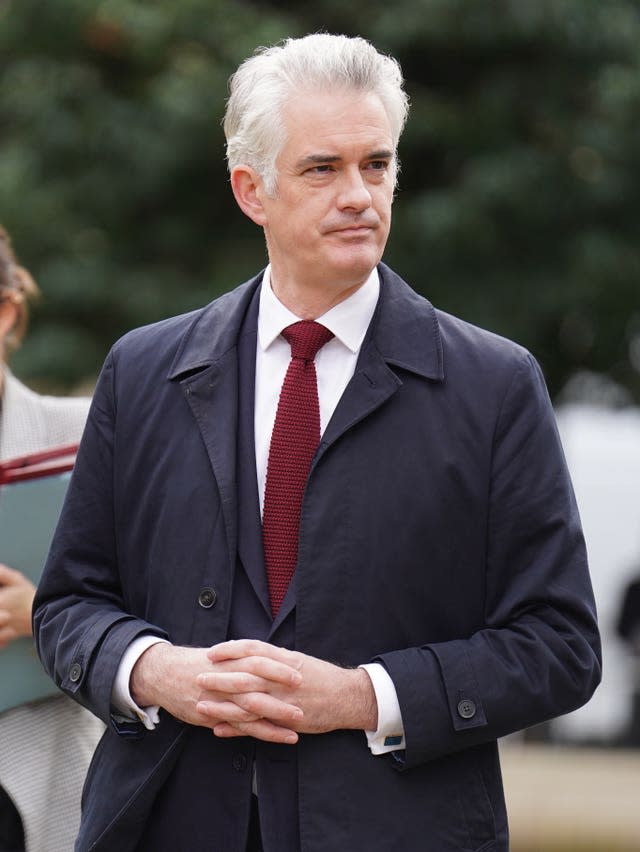Government urged to accept Brexit’s economic impact in light of IMF warning
Ministers have been urged to accept that Brexit has added to the UK’s economic woes, after the IMF warned the country will be plunged into recession this year.
Labour MP Stella Creasy accused the Government of “walking away” from questions about how Brexit has impacted the UK’s economic outlook.
Treasury minister James Cartlidge faced scrutiny from MPs following the IMF’s prediction that the UK economy will contract by 0.6% in 2023 against the 0.3% growth it pencilled in last October.
In its latest World Economic Outlook update, the IMF upped its growth outlook for the global economy, but cautioned that Britain looks set to suffer more than most from soaring inflation and higher interest rates.
In the Commons, Walthamstow MP Ms Creasy said: “The minister seems to be walking away from the question about what role Brexit has played in this economic outlook and I can understand why, because over half of his own constituents think it was a mistake.
“These benefits of Brexit seem to be like a toddler’s imaginary friend. Ministers keep talking about them, but only they can see them.”
She added: “The Prime Minister’s spokesman today told us that we are now seeing significant benefits from Brexit, so will the minister set the record straight?
“Can he explain to the small businesses in our constituencies who used to be able to export with ease to the European Union, a single market, where they now face a better deal than they did before?”
Treasury minister Mr Cartlidge stressed the importance of Solvency II reforms and said that alcohol duty reform planned later this year was “only possible because of Brexit”.

He added: “I think the most important by far was when we were faced with the greatest challenge outside of wartime in this country, in the pandemic, this country was able to move fast with an amazing vaccine programme because of its independence, which reduced deaths and freed up our economy, and allowed us to reopen and get growing again.”
Other opposition MPs also called on the Government to acknowledge the impact of Brexit on the economy.
SNP MP Patrick Grady (Glasgow North) told MPs about a cafe near Parliament which had a notice in its window reading ‘breakfast only today sorry, we are badly understaffed’.
He added: “That seems to chime with the findings of UK in a Changing Europe that there is a 300,000 shortfall of workers as a result of Brexit and the end of freedom of movement. It seems that Brexit really does mean breakfast after all.
“So will the Government not admit that it is Brexit that has taken the UK economy out of the frying pan and into the fire?”
Mr Cartlidge said the Government was “proud to have almost the lowest unemployment for the best part of 50 years”.
He added: “Of course that does present challenges when you have a tight labour market, that is why we think the best way forward is to ensure we have the apprenticeships, the skills, the training to ensure that we can deliver the workforce to meet our growth ambitions.”
Labour’s Rushanara Ali (Bethnal Green and Bow) also claimed that the minister failed “to mention the former prime minister (Liz Truss) and her chancellor crashed the economy on top of the uncertainties of the previous years, following the failure to get a decent deal after Brexit, which has hit our economy with a 4% hit on output”.
Elsewhere in the debate, DUP MP Carla Lockhart (Upper Bann) said the Northern Ireland Protocol was continuing to create “added uncertainty” for traders there.
She said: “Investment to drive growth is now being stalled as we await a new agreement. Does the Government recognise the need to urgently restore the integrity of the United Kingdom’s internal market to assist economic growth in Northern Ireland and does he commit to doing that?”
Mr Cartlidge stressed that work “is happening across departments in terms of the protocol”.

 Yahoo Movies
Yahoo Movies 